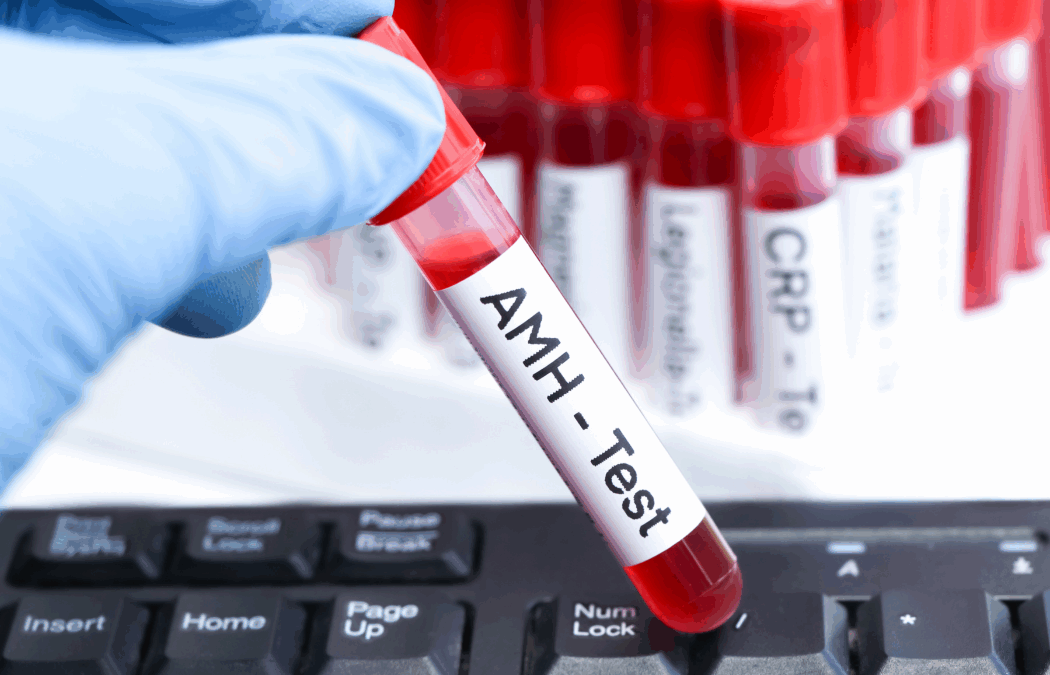In today’s fast-paced world, reproductive health challenges have become increasingly common among women of all age groups. One such concern that is gaining attention is low AMH levels and their link to menstrual cycle irregularities. At MotherToBe Fertility Centre, a leading fertility clinic in Hyderabad, we aim to educate and empower women by providing clarity around such complex conditions.
What Is AMH?
Anti-Müllerian Hormone (AMH) is a hormone secreted by the ovarian follicles. It is a key indicator of a woman’s ovarian reserve – the quantity and, to an extent, quality of her eggs. High AMH levels generally reflects a healthy egg supply, while low AMH levels suggests a diminished ovarian reserve.
Low AMH Levels: What Do They Mean?
Low AMH levels often indicate fewer eggs remaining in the ovaries, which can affect natural conception. However, low AMH is not a direct cause of infertility but rather a marker of reduced fertility potential. Women with low AMH may still conceive naturally or with medical support, especially when guided by experienced fertility experts like those at MotherToBe Fertility Centre.
How Low AMH Affects the Menstrual Cycle
One of the primary concerns among women with low AMH is irregular periods. The menstrual cycle is controlled by a delicate interplay of hormones. When AMH levels drop significantly, it often correlates with:
- Shorter menstrual cycles (less than 24 days)
- Skipped periods or anovulatory cycles
- Scanty or lighter bleeding
- Hormonal imbalances affecting ovulation
Irregular periods can be a sign that the ovaries are not functioning optimally, making it harder to predict ovulation and plan for conception.
Who Is at Risk of Low AMH?
Low AMH levels can affect women of all ages, though it’s more commonly seen in:
- Women over 35
- Those with a family history of early menopause
- Women with autoimmune disorders
- Those who have undergone chemotherapy or radiation
- Women with endometriosis
Early detection is key to taking proactive steps toward fertility planning.
Diagnosis and Treatment at MotherToBe Fertility Centre
At MotherToBe Fertility Centre, we use advanced diagnostic tools to evaluate AMH levels and overall ovarian reserve. Our tailored treatment plans for women with low AMH include:
- Ovulation induction with IUI
- IVF with personalized protocols
- Egg freezing for fertility preservation
- Lifestyle modifications and supplements
- Donor egg programs (if necessary)
We provide compassionate and cutting-edge fertility care designed to optimize outcomes, even in challenging cases.
Lifestyle Tips to Support Fertility with Low AMH
While you cannot increase the number of eggs, you can support better egg quality and hormone regulation with lifestyle changes:
- Maintain a healthy weight
- Eat an antioxidant-rich diet
- Avoid smoking and alcohol
- Manage stress with yoga or meditation
- Prioritize regular sleep patterns
At MotherToBe, our nutritionists and wellness experts work closely with fertility specialists to offer a holistic fertility care experience.
Conclusion
Understanding the link between low AMH levels and menstrual cycle irregularities can help you take charge of your reproductive health. At MotherToBe Fertility Centre, our dedicated team offers world-class fertility support tailored to your unique needs. If you are experiencing irregular periods or concerned about low AMH, consult our experts today for a comprehensive fertility evaluation.
FAQs About Low AMH and Menstrual Irregularities
- Can low AMH cause missed periods?
Yes, low AMH can be associated with irregular or missed periods due to disrupted ovulation. - Is pregnancy possible with low AMH?
Yes, many women with low AMH can conceive naturally or with fertility treatments like IVF. - What is considered a low AMH level?
An AMH level below 1.0 ng/mL is generally considered low, but interpretation depends on age and other factors. - Does low AMH affect period flow?
Yes, it can lead to lighter periods or shorter cycles due to poor follicular development. - Can I improve my AMH levels?
While AMH cannot be increased naturally, some treatments and lifestyle changes may help improve egg quality. - Should I freeze my eggs if I have low AMH?
Yes, egg freezing is often recommended for women with low AMH to preserve fertility. - How is low AMH diagnosed?
It’s diagnosed through a blood test, which can be done at any day of the cycle. - Does low AMH always mean infertility?
No, low AMH indicates reduced egg reserve but not infertility. Many women conceive with medical support. - How does MotherToBe treat women with low AMH?
We offer personalized fertility plans, including IVF, IUI, or egg freezing, depending on the case.
Can irregular periods be fixed with treatment?
Yes, with hormonal support, ovulation induction, and lifestyle changes, cycles can become more regular.

